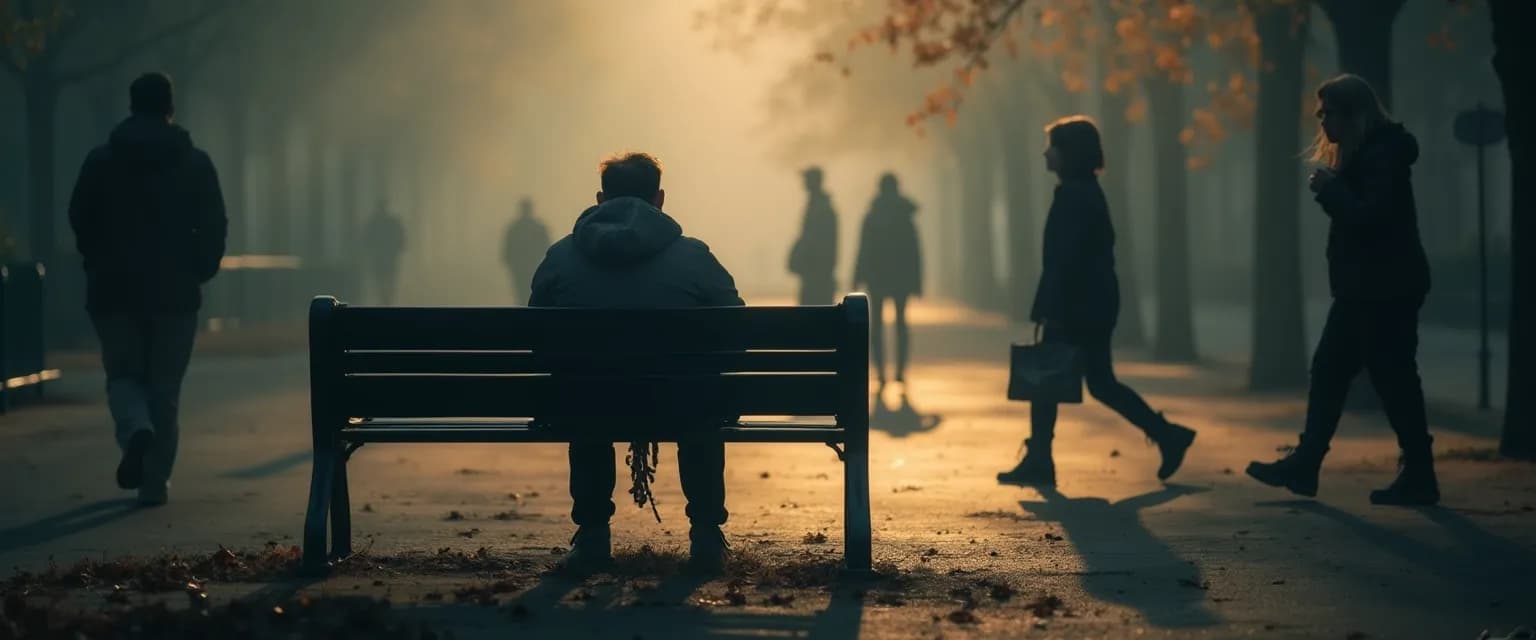Healing From the Most Painful Heartbreak That Friends Don't Acknowledge
When experiencing the most painful heartbreak of your life, there's an added layer of anguish when those around you don't acknowledge your suffering. That relationship that never quite had a label? That situationship that lasted just a few months? That friendship that disintegrated after years of connection? These experiences can create some of the most painful heartbreak moments we encounter, yet they often go unvalidated by our social circles.
The pain feels doubly intense—first from the loss itself, then from the isolation of grieving alone. Science confirms this isn't just in your head: social validation plays a crucial role in how we process grief. When others minimize or dismiss what you're feeling, it can actually intensify the most painful heartbreak and extend your recovery time. Your brain literally processes social rejection in the same regions that register physical pain, making emotional resilience techniques essential during these times.
What makes this type of grief so challenging is its invisibility. Without external acknowledgment, you might question the legitimacy of your own feelings, wondering if you're "overreacting" to what others perceive as a minor loss. But your pain is real, valid, and deserving of care—regardless of who else recognizes it.
Why Your Most Painful Heartbreak May Go Unrecognized
Society has unwritten rules about what qualifies as "legitimate" heartbreak. Traditional breakups after long-term, officially defined relationships typically receive immediate sympathy and support. But the most painful heartbreak often comes from less conventional situations that don't fit neatly into these categories.
The duration, formality, and visibility of your relationship significantly impact how others respond to your grief. A three-month situationship might have touched your soul more deeply than a year-long formal relationship, but friends might not understand this emotional math. The depth of your investment doesn't always correlate with what others can see from the outside.
Friends might minimize your most painful heartbreak for various reasons. Sometimes it's simple discomfort—witnessing raw grief makes people uneasy. Other times, it's a lack of similar experience; they can't relate to what they haven't felt. And occasionally, it's misguided attempts at helping you "move on" by downplaying the significance of your loss.
Cultural expectations also play a role. We're often taught to reserve our deepest grief for "significant" losses like marriages or deaths. This creates a hierarchy of pain that leaves many suffering in silence, convinced their heartbreak doesn't deserve the space it naturally demands in their emotional lives.
Remember that your friends' inability to validate your experience rarely comes from malice—more often, it stems from their own limitations in understanding complex emotional responses. Their reactions reflect their perspective, not the legitimacy of your feelings.
Self-Validation Techniques for Your Most Painful Heartbreak
When external validation isn't forthcoming, self-validation becomes your most powerful healing tool. Start by acknowledging your own experience: "This hurts deeply, and that's okay." Give yourself permission to grieve without qualification or justification.
Create small rituals that honor your loss. This might be as simple as lighting a candle each evening for a week, or taking five minutes daily to sit quietly with your feelings. These personal acknowledgments validate that something significant has ended and create space for processing the most painful heartbreak.
Practice self-compassion by speaking to yourself as you would a dear friend experiencing the same pain. Instead of "I shouldn't feel this way," try "It makes perfect sense that I'm hurting—this mattered to me." This simple reframing interrupts the cycle of self-judgment that often accompanies unvalidated grief.
Remember that healing isn't linear. The most painful heartbreak comes in waves, and each one is an opportunity to practice gentle self-acknowledgment rather than resistance or shame about your ongoing feelings.
Finding Support Beyond Your Usual Circle During Heartbreak
When your immediate circle doesn't understand your most painful heartbreak, it's time to expand your support network. Online communities dedicated to specific types of loss—be it situationships, friendship breakups, or other non-traditional grief—can provide the validation and understanding you're missing.
Shared experience is incredibly healing. Connecting with others who've weathered similar storms reminds you that your feelings are normal and that recovery is possible. These connections can form the bridge you need to cross from isolation to understanding.
Consider being selective about who you share with. Some friends might surprise you with unexpected empathy when approached one-on-one, away from group dynamics that can sometimes minimize emotional conversations. Try phrases like "I know this might seem small from the outside, but this breakup has really affected me deeply."
Remember that healing from the most painful heartbreak is possible, even without universal validation. By honoring your own experience, finding targeted support, and practicing emotional regulation techniques, you'll gradually find your way through this silent grief—emerging stronger and with deeper self-understanding on the other side.




